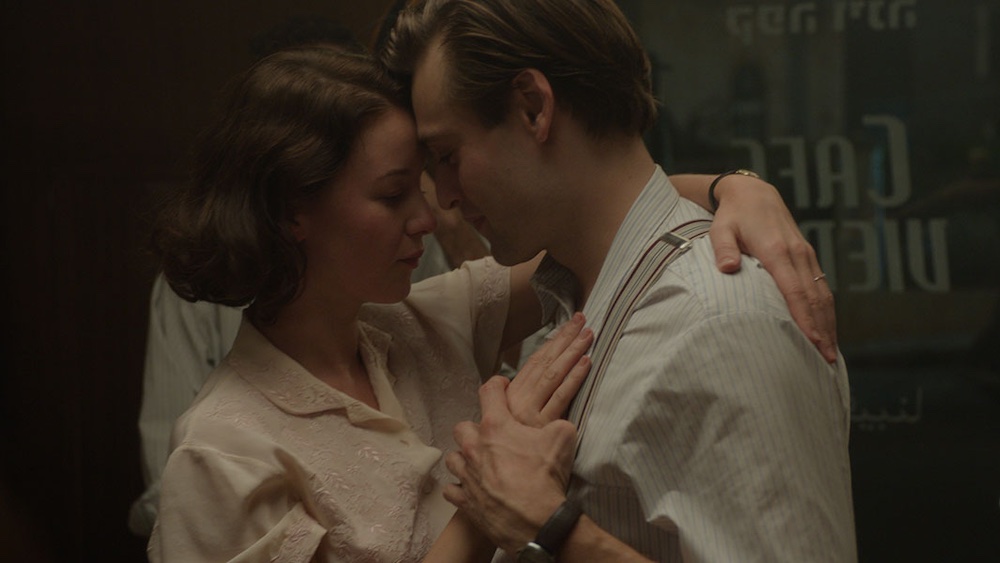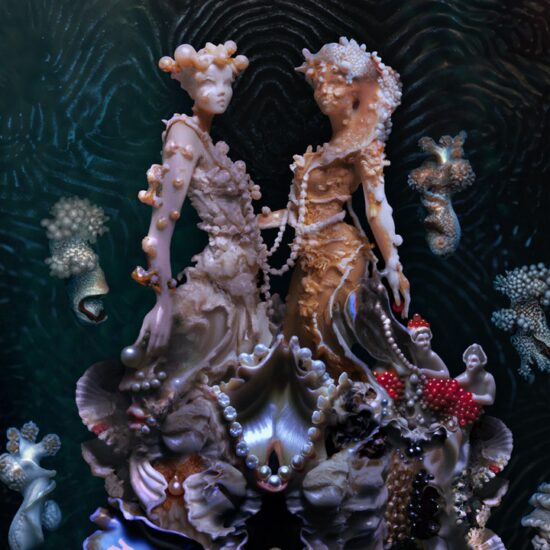
Britain’s official post-WWI administration of Palestine lasted from 1920-48 and is probably the UK colonial enterprise least addressed by its fiction filmmakers. But now prolific writer-director Michael Winterbottom (“The Trip,” “A Mighty Heart”) uses that complicated era as a backdrop to the compelling historical romance “Shoshana.” A passion project 15 years in the making and based on real people and events, the film employs the ill-fated, cross-cultural relationship between a ranking member of the British Palestine Police Force and a young Jewish woman to explore the way extremism and violence push people apart, forcing them to choose sides.
It’s worth noting upfront that while the British rulers had to deal with both Palestine’s Arab and Jewish citizens, each of whom want an independent country, the narrative here hews firmly to a British and Jewish p.o.v., with Arabs barely characterized except as victims and troublemakers. By the 1930s, Palestine is a cauldron of unrest with the Arab and Jewish populations at each other’s throats. In response, the British increase their police presence in the country, with new officer Geoffrey Morton (Harry Melling) assigned to the Arab villages around Jenin, and fellow recruit Tom Wilkin (Douglas Booth) allocated undercover anti-terrorist work in the growing, modern Jewish city of Tel Aviv.
Wilkin, who is mastering Hebrew, loves the city and its people, particularly Shoshana Borochov (the terrific Russian actor Irina Starshenbaum, of “Leto,” in her first English-language role), a strong, independent-minded Russian émigré who works for a newspaper. She is a member of the underground territorial defense force Haganah, and mixes with those who, like her, advocate the creation of an independent Jewish state by peaceful means.
For Tom, the Haganah reps the least of the British worries. Even if they have illegal guns, they are nominally on the UK’s side. Besides, the British police have their hands full trying to track down the Jewish militant groups who launch terror attacks against both their Arab neighbors and the occupying power. One such group is the paramilitary organization Irgun, led by the Polish-born poet Avraham Stern (Aury Alby).
For the British, who appear to have no consistent policy apart from clumsily trying to uphold the terms of the 1917 Balfour Declaration, the constant provocations from the Jewish groups are a bewildering annoyance and embarrassment. Even if audiences occasionally get confused as to who is doing what to who amid the onslaught of bombings, bank robberies and scenes of police interrogation and torture, the ambience of Winterbottom’s film is more important. He captures the casual anti-Semitism of the over-dressed British officials who remark, “That’s one less of them,” about a bomb-maker who has accidentally blown himself up, and the High Commissioner who limits Jewish immigrants from Nazi-occupied Europe.
Meanwhile, the atmosphere among the many Jewish characters is heated, with much discussion of what will get them to the future state that is almost within their grasp. The cautionary voices of those like Shoshana are overwhelmed by the revolutionary fervor of the Irgun, who believe the land of Israel can only be built by violence. As the costs to the British Mandate rise, so too do the challenges to Wilkin and Shoshana’s passionate relationship.
Given a complicated era to compress and make understandable, Winterbottom and co-writers Laurence Coriat and Paul Viragh were lucky to discover the relationship between Wilkin and Shoshana and be able to use it as a key to understanding some of the divisions of the time. Although both characters actually existed and were lovers, the film’s narrative is fictionalized.
While it may seem as if there are glimpses of Tel Aviv’s beautiful white Bauhaus buildings and a glimmer of its sparkling Mediterranean beaches, the attractive picture was actually shot on location in Apulia, Italy. Kudos to production designer Sergio Tribastone for an authentic look that carries over from the striking archival footage that contextualizes the film’s timeframe at the beginning. Likewise, praise is due to costume designer Anthony Unwin, whose good-looking period work provides a visual shorthand to who is British, Jewish or Arab.
Cinematographer Gilles Nuttgens, who previously shot Winterbottom’s mockumentary “Greed,” gives the visuals a thriller-like aspect, which complements the pacey editing of Marc Richardson and David Holmes’s suggestive score. In addition to sterling work by the three young principals, Ian Hart gives a standout performance as the British High Commissioner’s ubiquitous righthand man, offering a supercilious, world-weary gravitas that seemingly epitomizes the official British attitude to the Mandate.













